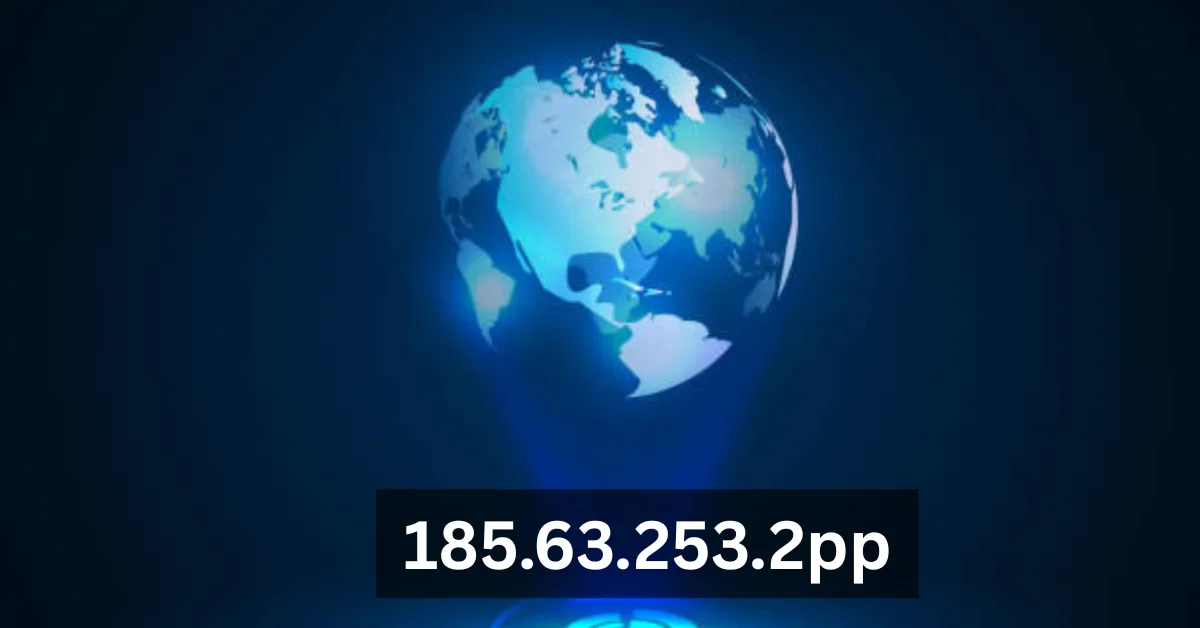In a time when digital footprints matter more than ever, obscure-looking terms like 185.63.253.2pp are gaining curiosity online. Is it an IP address? A code? A proxy server? Or something deeper in the dark web world?
Let’s break down what this strange alphanumeric string might be, what it could represent, and why it’s suddenly popping up on search engines and forums.
What Is 185.63.253.2pp?
At first glance, 185.63.253.2pp resembles a typical IPv4 address: a numerical label that identifies a device on the internet. However, the ending “pp” immediately sets it apart — that’s not standard IP formatting.
So, what gives?
After combing through tech communities and developer forums, one thing is clear: 185.63.253.2pp isn’t a real IP address — but it might be a placeholder, proxy identifier, or intentionally obfuscated reference.
Theories Behind 185.63.253.2pp
1. A Proxy Server Identifier
Some believe the “pp” suffix stands for “private proxy.” That would make 185.63.253.2pp a placeholder for a hidden or encrypted proxy IP used to access blocked content or maintain anonymity.
2. A Cloaked IP Address Format
In certain cybersecurity discussions, obfuscating the real structure of an IP address with extra characters like “pp” is a known trick to bypass filters or confuse scrapers. That makes this format a signal of something being intentionally hidden.
3. A Placeholder in Testing or Documentation
Web developers sometimes insert stylized, pseudo-IP formats like 185.63.253.2pp in testing environments or as “mock” entries in tutorials. The extra characters ensure it’s non-routable and safe for testing.
Why Are People Searching for 185.63.253.2pp?
You might be wondering: why is something so niche getting attention?
-
Curiosity: Tech-savvy users and cybersecurity enthusiasts spot unusual strings like this and dig deeper.
-
Mentions on forums: It may have appeared in an open-source GitHub repo, config file, or code snippet, sparking interest.
-
Security alerts: Occasionally, fake or spoofed IPs like this appear in suspicious logs, raising questions about malware or tracking.
Should You Be Concerned About 185.63.253.2pp?
Not necessarily. There’s no evidence (as of now) that 185.63.253.2pp is dangerous or linked to malicious activity. However, if it shows up in your network logs or app settings unexpectedly, it’s worth reviewing:
-
Run a malware scan
-
Check firewall or server logs
-
Look for embedded proxy scripts in your code
In most cases, it’s harmless or simply a non-operational placeholder.
How to Identify Real IPs from Obfuscated Ones
If you’re new to IP tracking or cyber hygiene, here’s how to spot fake or unusual addresses:
| Format | Real or Fake? |
|---|---|
| 192.168.1.1 | Real (Private IP) |
| 8.8.8.8 | Real (Google DNS) |
| 185.63.253.2pp | Fake/Modified Format |
| 10.0.0.abc | Invalid Characters |
Final Thoughts: The Mystery (and Utility) of 185.63.253.2pp
The internet is full of strange strings, cryptic codes, and digital puzzles — and 185.63.253.2pp is one of them.
Whether it’s a placeholder for privacy, a developer’s inside joke, or a random creation that sparked a thousand Google searches, one thing is clear: the unknown drives curiosity.
So, if you see “185.63.253.2pp” again, don’t panic — just smile. You’re part of the internet’s ongoing story.
